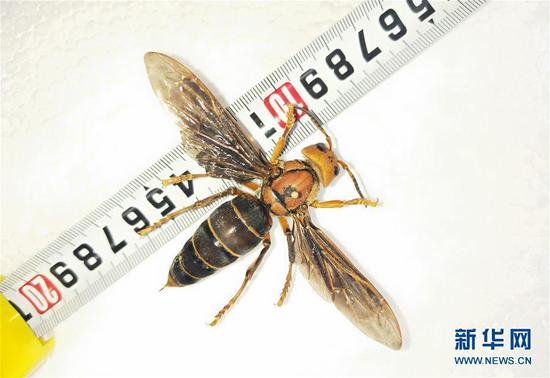Quarantine authorities say pests detected in grain
China has canceled a Canadian farming company's registration to ship canola to China after Chinese customs detected "dangerous pests" several times on imported Canada canola, Chinese Foreign Ministry spokesperson Lu Kang said on Wednesday.
Two Chinese experts said that China's customs agency is being strict with canola imports to be responsible for the health of the Chinese people, and urged Canadian firms to "respect China's laws."
One Canadian company's canola seeds present "particularly serious" quarantine problems, Lu disclosed at a routine press conference, without mentioning the name of the company.
It is perfectly logical, reasonable and legal for Chinese customs to make the decision to halt (canola) imports according to laws, regulations and international conventions, Lu said.
That one company is reported to be Canadian agribusiness Richardson International, which told media that China has canceled its registration to ship canola to China, according to a Reuters report on Tuesday.
Reuters interpreted the issue as the "latest sign of tensions" between China and Canada, who are at odds over Canada's arrest of Chinese telecom executive Meng Wanzhou on behalf of the US and its decision to commence her extradition.
Experts also said that if Canadian companies' canola shipments to China are hindered, it would bring great losses to Canada's canola farmers as China is the biggest buyer of Canadian canola.
China was Canada's biggest importer of Canadian oilseeds, accounting for 40 percent of the total in 2017, CTV News reported on Tuesday, citing figures from Statistics Canada.
"European and US customers do not consume canola oil as much as Asian people, particularly Chinese people, do," Jiao Shanwei, editor-in-chief of grain portal cngrain.com based in Central China's Henan Province and an agricultural expert, told the Global Times on Wednesday.
In 2018, China imported about 4.75 million tons of canola, compared with the 17 million tons of canola trade worldwide. Of the 4.75 million tons of canola, 93 percent was imported from Canada, according to data provided by Jiao.
Mei Xinyu, a research fellow at the Chinese Academy of International Trade and Economic Cooperation, told the Global Times that halting canola shipments by a certain Canadian company wouldn't have a negative impact on China's domestic supplies of canola oil. "China can increase canola production at home, or increase canola imports from other countries."
"Also, China can increase the imports of other types of edible oil to replace canola oil, such as peanut oil from Africa or palm oil from Malaysia," Mei said.


















































